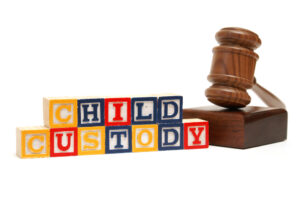When It's Over,
It's time to move on
Reasons To Seek Sole Custody Of A Child
 Divorces are difficult and challenging for partners, but they can even be more challenging for children. Depending on the age, a child may not understand the idea of a divorce or, if they’re older, they may respond in anger or bottle up their feelings.
Divorces are difficult and challenging for partners, but they can even be more challenging for children. Depending on the age, a child may not understand the idea of a divorce or, if they’re older, they may respond in anger or bottle up their feelings.
While divorce generally isn’t the most ideal situation for a child, sometimes it’s better than an unhappy marriage. Ideally, both spouses will keep joint custody, but there are some situations where it makes more sense for a parent to have sole custody. First, however, you shouldn’t seek divorce if a spouse is bad at being a married partner but still is good at being a parent.
Now, let’s explore some situations where you should seek sole custody:
- Abuse of Any Kind
Whether physical, mental, or emotional, you should seek sole custody of a child if one parent exhibits abuse. Abuse can be directed towards a child, but even if abuse is only directed towards yourself or, for example, an elderly family member, you should still seek sole custody. Your spouse may shift focus to abusing your child.
- Negative Behaviors or a Lifestyle
A parent that engages in negative behaviors like substance abuse, a gambling addiction, or explicit, illegal activity puts a child’s life at risk. Such behaviors can result in problems like a parent neglecting a child and can escalate into a child becoming involved in such behaviors themselves. A parent engaging in such behaviors isn’t necessarily a bad person, but they are unfit to be a parent, at least until they correct their behaviors or lifestyle.
- Neglect or Abandonment
A parent may exhibit signs of neglect or abandonment towards a child, even while both partners are still married. Neglect can involve failing to provide a child with necessities like medical and dental care, food, shelter, and clothing. If you’re going through a separation or if a parent has failed to try making contact with a child, this can potentially be seen as a sign of abandonment, but it can depend on the situation.
- Can’t Handle a Child’s Special Needs
Some children with special physical or mental needs may require more care and attention, and a parent may not have the ability to provide the necessary time and care. For example, a parent can have a hectic work schedule or is simply uncomfortable in helping a child with special needs. This doesn’t mean that they don’t love their child but that they are unqualified to help, making sole custody the better option.
- A Parent Is Incarcerated
When a parent is in prison, they’re unable to provide for their child. In this situation, it often makes sense to have sole custody of a child and to work out visitation rights after the parent is released. You also shouldn’t feel pressured to take your child to visit their parent in prison as this can cause emotional or psychological stress for them.
Ideally, parents should practice joint custody of children, but working with a Memphis child custody lawyer to receive sole custody is the better option sometimes, something our friends at Patterson Bray PLLC agree with.

